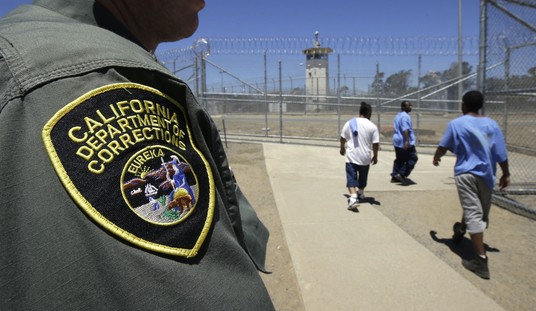No dues, no Democrats? By this time in a presidential election cycle, public-employee unions would deploy cash and personnel in force to organize for the Democratic ticket. Groups like AFSCME and SEIU would blanket airwaves, and their members would march and door-knock constantly to turn out the vote — especially in urban cores where their strength is greatest.
This year, however, PEUs have much fewer resources in both cash and manpower, Roll Call reports. And that might have a big impact on elections all the way down the ballot:
Unions’ strength amid the epidemic will be tested this fall. Democrats rely heavily on labor’s political support every November. That’s no different this year, but the coronavirus is. Laid-off workers don’t pay union dues, meaning the pandemic may cut into organized labor’s electoral spending. More worrisome for Democrats, COVID-19 could kneecap unions’ most potent campaign contribution: legions of door-knocking volunteers. …
More importantly, unions provide manpower. Usually, organizers shift from arranging union elections to winning political ones, and rank-and-file members sign up in droves for door-knocking operations.
But the pandemic forced unions to cut staff, and health concerns are forcing members to do get-out-the-vote work from home.
The National Education Association, which represents around 3 million teachers, has shifted its operations online, replacing door-knocking with peer-to-peer texting campaigns, social media outreach and phone-banking. That has increased the breadth of the union’s outreach efforts, said Carrie Pugh, NEA’s political director.
Er … don’t bet on it. Door knocking is at least interactive, where conversations and personal connections are either created or strengthened. Unsolicited texts and cold-calling are a lot easier to ignore and don’t have nearly the same kind of effect. The difference is the former allows for the kind of bi-directional communication that allows for campaigners to contextualize candidates around individual voters’ priorities and concerns. That is what creates the emotional reaction that boosts the likelihood of voting.
The latter is what Mitt Romney and Hillary Clinton did in their respective losses — using 30,000-foot messaging as a lecture. And Hillary lost her bid while the unions tried to close the gap on her less-than-enthusiastic retail politicking. This time, Biden isn’t doing any one-on-one politicking at any level — and if the unions aren’t doing much of it either, it’s tough to see how Democrats can generate much of a GOTV effort in November.
Furthermore, PEUs are usually strongest in the cities, where they dominate in both governance and numbers. They work in the bureaus that have direct contact with voters anyway and can help target specific neighborhoods with messages tailored to their specific needs. The GOP needed to build the Republican Leadership Initiative (now renamed the Trump Victory Leadership Initiative) just to compete at all against that Democratic advantage. If that’s largely sidelined this year, we can expect to see a less-enthusiastic turnout in the cities, where voters may already be less inclined to go out and vote thanks to violence in the streets.
Don’t forget too that Republicans and Trump have not foregone door-knocking and retail politicking. They are reportedly making a million in-person voter contacts a week, and have been all summer long, according to a Politico article six weeks ago. Biden might have finally trounced Trump in fundraising last month, but Trump raised enough to keep that advantage going — and Biden has no time now to organize any effective retail politicking. All of that money will go instead into even more TV ads, which probably reached their saturation point before the convention. Ask Hillary how well her TV-ad advantage worked out for her in 2016, and that was when Trump didn’t have an effective ground organization.
If the PEUs are sidelined as Roll Call reports, Biden’s got a very big problem — and so do all the Democrats sharing a ballot with him.







Join the conversation as a VIP Member